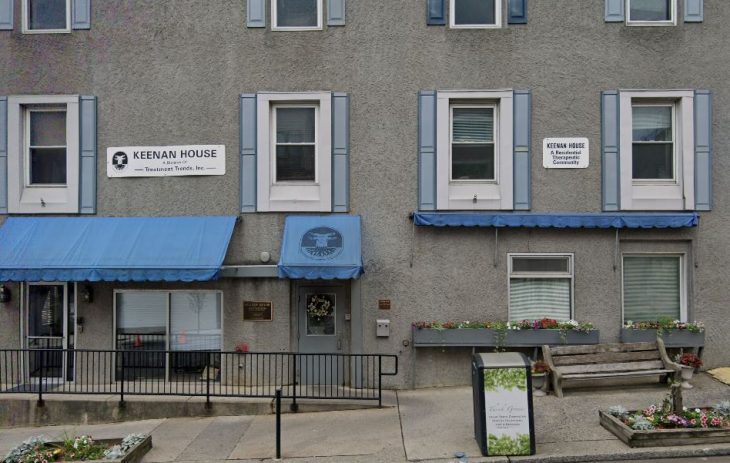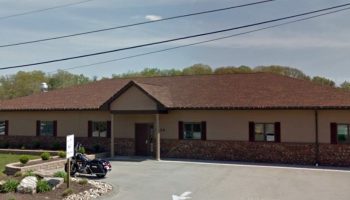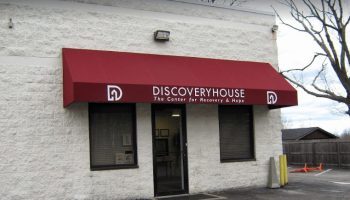About Treatment Trends Keenan House
Though Treatment Trends has currently suspended admissions into Allentown Residential, it’s worth knowing what the facility is about in the event you or a loved one seeks treatment here once admissions reopen. Residential addiction treatment here reflects ASAM and DDAP criteria for Level 3.5 high-intensity care, and is available to adults based in Pennsylvania. County-funded insurance and Medicaid are accepted.
A Residential Drug Rehab in Eastern Pennsylvania
The program here is progress-based, integrating mental health and addiction treatment for comprehensive support. The team supports you by crafting your tailored treatment plan, accounting for your unique situation, preferences, and recovery goals. You’ll be expected to complete 6-8 hours of addiction treatment activities per day.
Your treatment may involve medication-assisted treatment (MAT) if deemed supportive. This is offered in different medications like Vivitrol, Sublocade, as well as buprenorphine-naloxone combos like Suboxone and Zubsolv.
This is a non-smoking facility, though you’ll be permitted smoking breaks outdoors each day if needed.
Phased Addiction Treatment in Lehigh County
Programming here is broken down into 3 distinct phases: stabilization, communication and support, and relapse prevention. Each phase provides differing levels of support, meeting you where you’re at with each milestone to forge a strong, stable pathway to recovery.
Phase one begins with a ‘blackout’ period for seven days, where you’ll be fully immersed in the facility, assessed, issued with a personalized treatment plan, and matched with a mentor. You’ll stay onsite during this stage, getting settled in your new, temporary home, and getting to know your peers and the staff you’ll be working alongside.
Levels of Care
-
Inpatient
Inpatient and residential programs provide round-the-clock medical and emotional support as you live at the treatment facility. This level of care may be recommended if you have severe addictions or mental health conditions since it removes outside distractions and allows you to focus solely on therapy.
-
Aftercare
Aftercare programs provide ongoing support after you complete a rehab program. They may include several components to help you maintain sobriety including therapy, community support groups and relapse prevention strategies. This gives you a network of resources as you reintegrate into your daily life.
-
Dual Diagnosis
Dual diagnosis programs address substance use disorders and co-occurring mental health conditions simultaneously. This integrated approach to care improves the likelihood of long term recovery and stability by addressing the root causes of addiction.
Detox Service Setting
-
Inpatient Detox
Inpatient detox occurs in a dedicated treatment facility. You’ll live there around the clock and receive intensive medical support and supervision to help manage your withdrawal symptoms. It is suitable for individuals with moderate to severe addictions as it ensures a stable detox environment.
Programs
-
Adult (18+)
Adult programs address the substance use and life challenges specific to adults. Therapists can deliver sessions in individual, group and family settings. Services often include job support and life skills training in a structured environment.
-
Alcohol Detox
Alcohol detox programs offer medical support to help individuals withdraw safely from alcohol. Your care team may use medications to ease your symptoms and provide medical monitoring to address complications.
-
Cognitive Behavioral Therapy
Cognitive behavioral therapy focuses on changing harmful thought patterns and behaviors associated with addiction. You’ll learn healthier coping mechanisms by identifying and replacing negative thoughts. This improves your emotional resilience and decreases your relapse potential.
-
Men
Men's programs address substance use while also considering the social pressures, family roles and mental health concerns that are specific to men. You’ll learn healthy coping mechanisms as you build emotional resilience and develop communication skills.
-
Opioid Detox
Opioid detox uses medications to ease severe withdrawal symptoms. It also includes medical supervision to help you manage potential complications. These services allow you to stabilize and begin a recovery plan.
-
Rational Behavior Therapy
Rational behavior therapy helps you identify irrational beliefs that contribute to an addiction. Challenging and modifying those beliefs helps you develop healthier attitudes and behaviors. This therapy supports long term sobriety and sustainable recovery.
-
Young Adult (18 - 25)
Young adult programs are designed for individuals who are transitioning into adulthood. Topics of discussion typically include identity, independence and peer relationships. Providers may also offer life skills training and career support.
Payment Options
- Payment Assistance
- Medicaid
- Self Pay
Amenities
- Metropolitan Area
Contact
18 South 6th Street
Allentown, PA 18101





